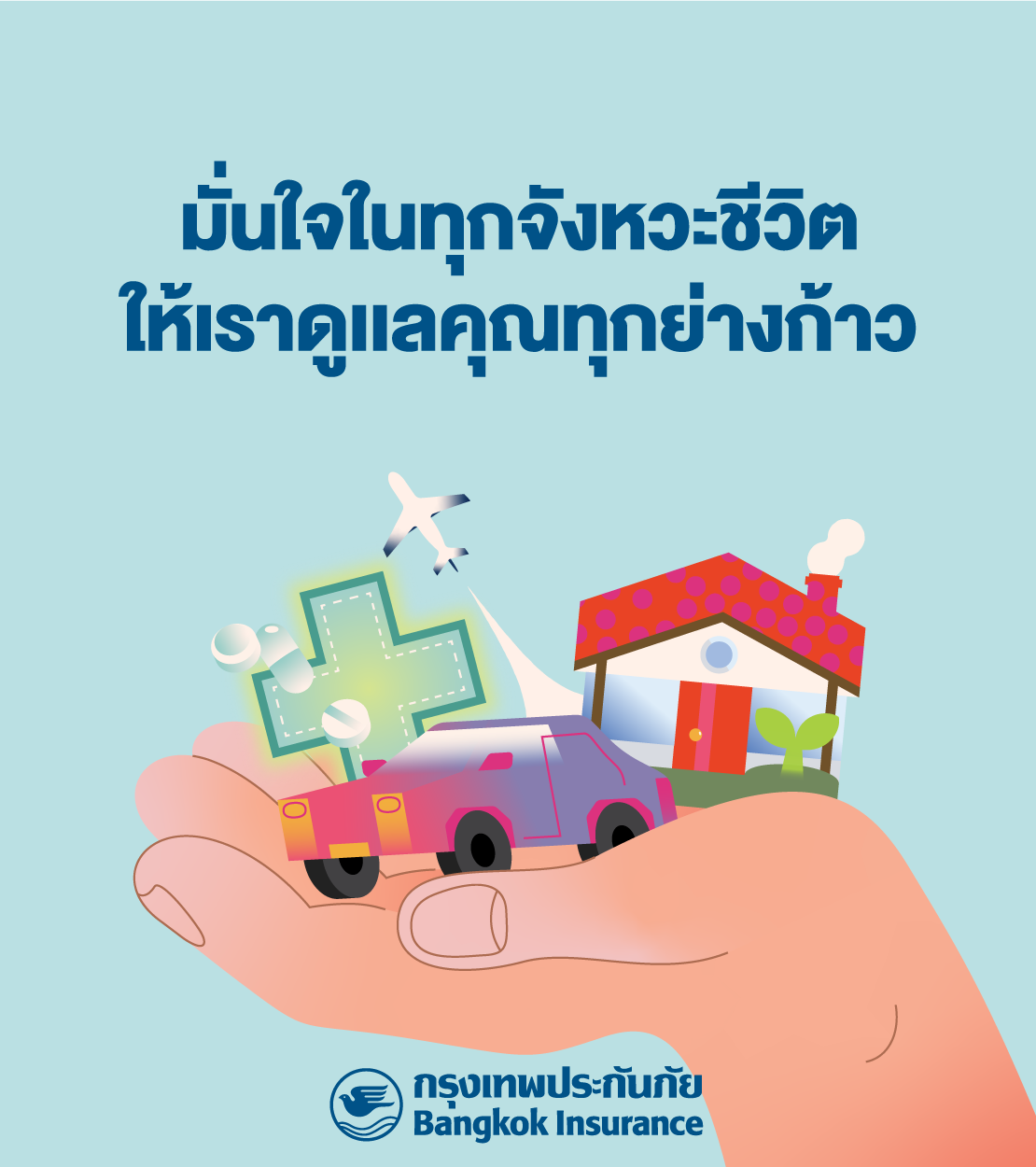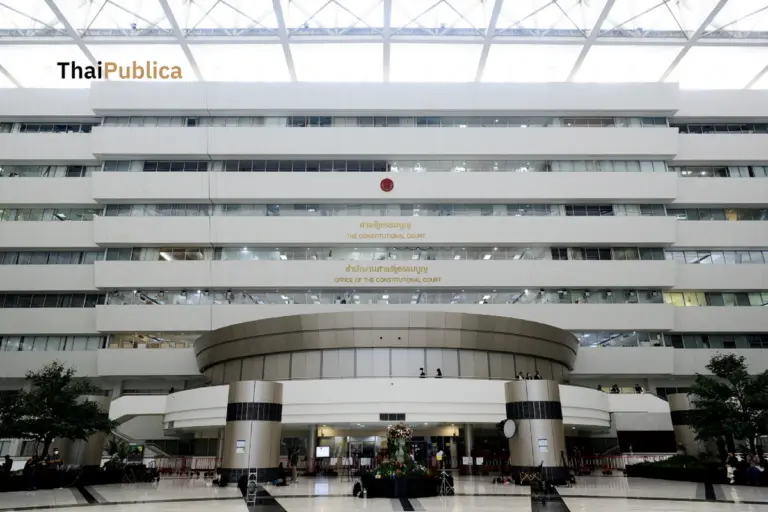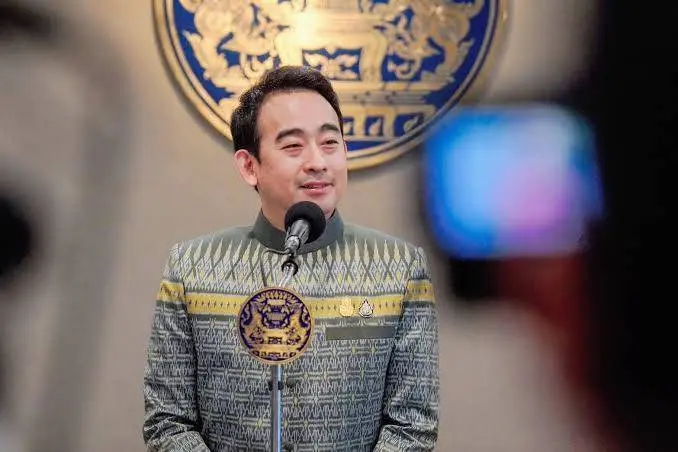แพทย์เผยโรคไข้หวัดใหญ่ในไทยป่วยได้ตลอดปีนี้อาจทะลุล้านราย ย้ำผู้สูงอายุเป็นกลุ่ม ‘เสี่ยงตาย’ โดยเฉพาะผู้ที่มีโรคเรื้อรังร่วมด้วย แนะควรฉีดวัคซีนป้องกันก่อนที่จะสายเกินไป
ปี 2566 มีรายงานคนไทยป่วยโรคไข้หวัดใหญ่กว่า 3 แสนราย แพทย์ผู้เชี่ยวชาญเชื่อยอดป่วยจริงอาจทะลุหลักล้านราย เพราะติดเชื้อได้ตลอดปี ป่วยแล้วป่วยซ้ำได้ในปีเดียวกันหากไม่ฉีดวัคซีนไข้หวัดใหญ่ เผยผู้สูงอายุเสี่ยงเป็นโรคแทรกซ้อนรุนแรงถึงขั้นเสียชีวิตได้ เพราะเป็นกลุ่มเปราะบางและมีโรคประจำตัวร่วมด้วย แนะรัฐเพิ่มจำนวนวัคซีนฟรีให้ผู้สูงอายุ 65 ปีขึ้นไป และขยายกลุ่มเด็กโตให้รับวัคซีนเพิ่มขึ้นเพราะมีโอกาสติดเชื้อไข้หวัดใหญ่แล้วแพร่เชื้อสูง ย้ำวัคซีนคุ้มค่า คุ้มทุน และเป็นที่ยอมรับมากว่า 80 ปีแล้ว
รศ.(พิเศษ) นพ.ทวี โชติพิทยสุนนท์ ประธานมูลนิธิส่งเสริมการศึกษาไข้หวัดใหญ่ กล่าวว่า “ไข้หวัดใหญ่เป็นโรคที่มีการระบาดเป็นประจำทุกปี แต่จากช่วง 2-3 ปีที่มีการระบาดของโควิด-19 ทำให้โรคไข้หวัดใหญ่หลบไปและห่างเหินชั่วคราว นอกจากนี้ ประชาชนทั่วไปไม่ได้สร้างภูมิคุ้มกันต่อโรคนี้และมีมาตรการป้องกันโควิด-19 จนในปี 2566 จึงเห็นชัดเจนว่าประชาชนมีการป่วยโรคไข้หวัดใหญ่จำนวนมาก จากรายงานของกระทรวงสาธารณสุข (สธ.) ตั้งแต่มกราคม-ตุลาคม 2566 พบผู้ป่วยกว่า 3 แสนราย ซึ่งในจำนวนนี้เสียชีวิต 21 ราย แต่ในความเป็นจริงจำนวนผู้ป่วยอาจจะมากกว่านี้ เนื่องจากผู้ที่มีอาการน้อยไม่ได้เข้ารับการรักษาหรือรักษาที่คลินิกก็ไม่ได้รับการรายงาน จึงเชื่อว่าในปีนี้น่าจะมีผู้ที่ป่วยเป็นโรคไข้หวัดใหญ่อาจถึงหลักล้านคนได้
จากข้อมูลโรคไข้หวัดใหญ่ย้อนหลังของประเทศไทย จะมีความแตกต่างจากประเทศในซีกโลกเหนือ เช่น สหรัฐอเมริกา ยุโรป ญี่ปุ่น และเกาหลี ที่จะมีโรคไข้หวัดใหญ่ระบาดเฉพาะช่วงฤดูหนาว เมื่อฤดูร้อนโรคจะหายไปหมด แต่สำหรับประเทศไทยอยู่ตรงเส้นศูนย์สูตร จึงพบโรคไข้หวัดใหญ่ได้ตลอดทั้งปี แต่จะพบผู้ป่วยจำนวนมากขึ้นในช่วงฤดูฝน เพราะมีความชื้นสูง ฝนตกคนรวมกลุ่ม นักเรียนเปิดเทอม ทำให้โรคไข้หวัดใหญ่มีการระบาดและเด็กนักเรียนจะนำเอาเชื้อไข้หวัดใหญ่เข้าสู่ครอบครัวและผู้สูงอายุที่บ้าน ซึ่งกลุ่มเด็กเป็น ‘กลุ่มเสี่ยงเป็น’ และมักจะรุนแรงในกลุ่มเด็กเล็ก ขณะที่ผู้สูงอายุเมื่อป่วยเป็นโรคไข้หวัดใหญ่อาจจะมีอาการรุนแรงมาก เรียกว่าเป็น ‘กลุ่มเสี่ยงตาย’ ส่วนคนหนุ่มสาวก็ป่วยได้แต่ส่วนใหญ่ไม่ค่อยรุนแรง จะเห็นได้ว่าโรคไข้หวัดใหญ่เป็นได้ทุกกลุ่มอายุ และโรคนี้จะคงอยู่กับเราตลอดไป วัคซีนไข้หวัดใหญ่จึงมีประโยชน์สำหรับคนทุกวัย”
รศ. (พิเศษ) นพ.ทวี กล่าวด้วยว่า การศึกษาในประเทศไทยกรณีการเข้ารับการรักษาด้วยโรคไข้หวัดใหญ่ พบว่า มีการสูญเสียทางเศรษฐกิจทั้งทางตรงและทางอ้อม การศึกษาพบว่าภาระโรคไข้หวัดใหญ่ในประเทศไทยมีการจ่ายค่ารักษาทั้งสิ้น ปีละประมาณ 1,100 ล้านบาท และมีการสูญเสียค่าใช้จ่ายทางอ้อมอีก 1,300 ล้านบาท รวมทั้งสิ้นสูญเสียทางเศรษฐกิจ เป็นเงินจำนวน 2,400 ล้านบาทต่อปี ทั้งนี้ ทางการแพทย์มีการศึกษาวิจัยถึงวิธีการป้องกันควบคุมโรคที่มีความคุ้มค่า คุ้มทุนมากที่สุด คือ ‘วัคซีน’ และภาครัฐบาลได้นำวัคซีนไข้หวัดใหญ่มาให้บริการฟรีกับกลุ่มเสี่ยงที่ป่วยแล้วจะมีความรุนแรง เช่น เด็กเล็ก ผู้ที่มีโรคประจำตัว โรคอ้วน หญิงตั้งครรภ์ และผู้สูงอายุ
สำหรับประเทศไทยที่เข้าสู่สังคมผู้สูงอายุ (aging society) ควรจะมีนโยบายจัดการหรือแนวทางในการป้องกันช่วยลดการระบาดของโรคไข้หวัดใหญ่ และเพิ่มอัตราการฉีดวัคซีนให้มากขึ้น สะดวกขึ้น อาทิ ช่องทาง Drive-Thru เช่นเดียวกับประเทศสหรัฐอเมริกาหรือแถบยุโรปที่มีทีมพยาบาลหรือสหสาขาวิชาชีพก็สามารถให้บริการได้สะดวกมาก โดย รศ. (พิเศษ) นพ.ทวี มองว่าวัคซีนไข้หวัดใหญ่มีการยอมรับในภาคประชาสังคมของคนไทยมากที่สุด เป็นวัคซีนที่มีการพัฒนาและใช้กันมายาวนานกว่า 50 ปี มีความปลอดภัยสูง นับได้ว่า ‘วัคซีนไข้หวัดใหญ่’ มีความคุ้มค่าและคุ้มทุนอย่างมาก โดยเฉพาะในกลุ่มผู้สูงอายุที่เป็นกลุ่มเสี่ยงตาย ช่วยลดความรุนแรงของอาการเจ็บป่วย โรคแทรกซ้อนรุนแรง การนอนโรงพยาบาล และการสูญเสียชีวิตได้ ซึ่งหากภาครัฐมีการพิจารณาเพิ่มจำนวนวัคซีนในกลุ่มผู้สูงอายุและผู้มีโรคประจำตัวที่เสี่ยงป่วยรุนแรงที่มีโอกาสเสียชีวิตได้มีโอกาสเข้าถึงวัคซีนมากขึ้น รวมถึงพิจารณาขยายกลุ่มฉีดฟรีในกลุ่มเด็กโต ซึ่งเป็นกลุ่มเสี่ยงที่จะนำพาเชื้อไข้หวัดใหญ่เข้าสู่ครอบครัวและผู้สูงอายุในบ้าน ก็จะช่วยลดภาระทางเศรษฐกิจทั้งทางตรงและทางอ้อมได้อย่างมหาศาล
ขณะที่ ศ. พญ.ศศิโสภิณ เกียรติบูรณกุล หัวหน้าสาขาวิชาโรคติดเชื้อ ภาควิชาอายุรศาสตร์ คณะแพทยศาสตร์โรงพยาบาลรามาธิบดี มหาวิทยาลัยมหิดล ให้ข้อมูลว่าผู้สูงอายุมักเป็นกลุ่มเสี่ยงสูงจาก 3 ปัจจัยหลัก ๆ ซึ่งประการแรกสำคัญที่สุด ก็คือ 1) ภาวะภูมิคุ้มกันถดถอยหรือภูมิคุ้มกันที่ลดลงเมื่ออายุมากขึ้น ไม่สามารถต่อสู้กับเชื้อโรคได้เหมือนช่วงหนุ่มสาว ทำให้มีโอกาสติดเชื้อได้ง่าย รวมถึงถ้าติดเชื้อแล้วจะมีความรุนแรงได้ 2) ผู้สูงอายุมักจะมีโรคร่วม เช่น ผู้สูงอายุบางรายอาจมีโรคปอดถุงลมโป่งพอง พอป่วยเป็นโรคไข้หวัดใหญ่ก็จะทำให้หอบเหนื่อยหรือมีเชื้อลงปอดและมีอาการรุนแรงมากกว่าปกติ หรือบางรายอาจเป็นโรคหัวใจอยู่เดิม พอป่วยเป็นโรคไข้หวัดใหญ่อาจส่งผลให้โรคหัวใจแย่ลงตามไปด้วย หรือหากป่วยเป็นโรคเบาหวาน ก็จะทำให้ภูมิคุ้มกันร่างกายไม่ดี เพราะเซลล์ที่จะไปจับกินเชื้อโรคก็จะทำงานได้ไม่ดี ซึ่งล้วนก่อให้เกิดความยุ่งยากซับซ้อนเนื่องจากมีโรคอื่น ๆ ร่วมด้วย และ 3) ผู้สูงอายุยังมีภาวะทุพโภชนาการ คือ กินได้น้อยลง กินได้ไม่ครบ 5 หมู่ ก็จะส่งผลให้เกิดโรคได้ง่าย รวมถึงเป็นโรคที่รุนแรงได้ง่าย
ปัจจัยดังกล่าวจึงเป็นเหตุผลสำคัญที่ ‘ผู้สูงอายุ’ ควรต้องฉีดวัคซีนไข้หวัดใหญ่ เพื่อลดความรุนแรงของโรค ลดการเกิดปอดอักเสบจากการที่เชื้อไวรัสลงปอด ลดการเจ็บป่วยที่จะต้องนอนโรงพยาบาล และลดการเสียชีวิต เนื่องจากการปฏิบัติตัวเพื่อป้องกันโรคติดเชื้อในชีวิตประจำวัน เช่น การสวมหน้ากากอนามัย การล้างมือบ่อย ๆ และการอยู่ห่างจากผู้ติดเชื้อ จะไม่สามารถทำได้ตลอดเวลา หรือปฏิบัติแล้วก็ยังมีโอกาสป่วยได้เช่นกัน
ทั้งนี้สมาคมโรคติดเชื้อแห่งประเทศไทย ได้มีคำแนะนำว่า จริง ๆ แล้ว ทุกคนควรจะได้รับวัคซีนไข้หวัดใหญ่ โดยสามารถฉีดได้ตั้งแต่อายุ 6 เดือนขึ้นไป ในปัจจุบัน ประเทศไทยมีวัคซีนไข้หวัดใหญ่ 2 ประเภท ได้แก่
1.วัคซีนไข้หวัดใหญ่ขนาดมาตรฐาน (standard dose) มีปริมาณแอนติเจน 15 ไมโครกรัมต่อ 1 สายพันธุ์ต่อโดส สามารถฉีดได้ตั้งแต่อายุ 6 เดือนขึ้นไป จนถึงผู้สูงอายุ
2.วัคซีนไข้หวัดใหญ่ขนาดสูง (high dose) มีปริมาณแอนติเจน 60 ไมโครกรัมต่อ 1 สายพันธุ์ต่อโดส เป็นอีกทางเลือกสำหรับผู้สูงอายุ 65 ปีขึ้นไป เนื่องจากมีการศึกษาพบว่าลดการติดเชื้อแบบมีอาการได้มากกว่าวัคซีนไข้หวัดใหญ่ขนาดมาตรฐาน ประมาณร้อยละ 24 และยังลดการนอนโรงพยาบาลจากโรคไข้หวัดใหญ่และปอดอักเสบได้สูงกว่าขนาดมาตรฐาน รวมถึงลดการเสียชีวิตจากโรคไข้หวัดใหญ่ได้สูงกว่าขนาดมาตรฐาน โดยอาจมีอาการปวดบริเวณที่ฉีดมากกว่าขนาดมาตรฐานเล็กน้อย
รศ. (พิเศษ) นพ.ทวี กล่าวทิ้งท้ายว่า “สิ่งสำคัญที่อยากแนะนำในการฉีดวัคซีนไข้หวัดใหญ่ คือ ประชาชนไม่จำเป็นต้องรอให้ครบ 1 ปี โดยทุกปีวัคซีนของฤดูกาลใหม่จะเข้ามาในช่วงเมษายน – พฤษภาคม สามารถมาฉีดได้ทันที เพียงให้เว้นระยะห่างจากวัคซีนครั้งก่อนอย่างน้อย 6 เดือน โดยกลุ่มเสี่ยงที่รัฐกำหนดสามารถฉีดฟรีได้ที่หน่วยบริการพยาบาลภาครัฐ หรือสอบถามสายด่วนกรมควบคุมโรค 1422 สำหรับผู้ที่ไม่ใช่กลุ่มเสี่ยงสามารถฉีดได้ที่หน่วยบริการภาครัฐและเอกชน โดยที่จะต้องดูแลค่าใช้จ่ายเอง”
……………….
Flu hit up to 1 million Thais annually: flu vaccination urgently needed to prevent deaths in elderly with chronic health conditions.
According to a 2023 report from Ministry of Public Health, Thailand, over 300,000 Thai people were infected with influenza. Specialists believe probably one million people annually come down with the flu due to year-round occurrence. Moreover, unvaccinated people are at greater risk of recurring flu infection and the elderly are susceptible to flu-related severe illness or deaths because comorbidities can complicate their symptoms. The Influenza Foundation (Thailand) calls on the Thai Government to increasing offer free flu shot to people over 65 years of age and expand free flu vaccination to cover more school children who are likely to spread the disease. The flu vaccine is worth this investment and has been recognized as a cost-effective preventive measure for over 80 years.
Associate Professor Tawee Chotpitayasunondh, President of the Influenza Foundation (Thailand), reveals “flu is a seasonal disease. Since COVID-19, fewer people have been catching the flu due to preventive measures and so people are now less immune to it. According to the report from Ministry of Public Health, during the January-October period of 2023, over 300,000 flu patients were infected with influenza and 21 of them died. In fact, many more with less severe illness were infected without needing hospital admission. The report did not include patient data from those who did not receive treatment due to mild symptoms or those who received treatment at private clinics. It is believed by the end of 2023 probably one million people will have experienced a flu infection.”
“Analysis of flu infection data in Thailand reveals a distinct seasonal outbreak contrast with countries located in temperate climates, like the US, certain European countries, Japan, or Korea. In those regions, flu is seasonal, mostly peaking in winter and waning or nearly disappear in warmer months. However, Thailand, located in the tropical zone, experiences flu outbreak consistently throughout the year. The rainy season will see a surge in cases due to high humidity, increased close contact in enclosed spaces, and the beginning of the school semester. These factors contribute to flu transmission within families, putting at increased risk both young children and the elderly, who face greater risk of severe illness or death due to comorbid conditions. However, young adult flu cases are typically less severe without complication. In summary, influenza appears year-round, affecting all age groups, and vaccination is the most cost effective for flu prevention in all age groups as well.”
Associate Professor Tawee adds, “research regarding influenza-related hospital admission in Thailand measured the direct and indirect economic costs of the flu – finding that the annual direct cost of flu treatment is 1.1 billion THB and the annual indirect loss of business/work opportunities is 1.3 billion THB. So, the annual cost of the flu in Thailand is 2.4 billion THB. However, the best and most cost-effective measures for influenza prevention is vaccination. The Thai Government currently offers free flu vaccination to people of at-risk groups, including young children, people with certain comorbid conditions, pregnant women, and the elderly.”
Since Thailand is an aging society, we must expand flu prevention and control measures, including providing free vaccines more accessible. For example, Thailand should make use of teams of multidisciplinary healthcare professionals to provide vaccination services at drive-thru stations, like in the US and Europe. Associate Professor Tawee believes the flu vaccine holds the highest level of acceptance among Thai society, since it has been safely administered for over 50 years. The flu vaccine’s record of efficacy and safety prove it is worth the investment. Regarding the elderly at risk of flu-related severe illness or death, the vaccine lessens the severity of symptoms & complications, duration of hospital stays, and mortality. If the Thai Government would increase the number of free doses distributed to the elderly and other at-risk groups – especially children who are an important transmitter or for flu virus in addition to being an at-risk group, the financial burden of the flu could be greatly reduced.
Professor Sasisopin Kiertiburanakul, Chief of the Division of Infectious Diseases, Faculty of Medicine Ramathibodi Hospital, Mahidol University reveals “the elderly are susceptible to flu infection for three reasons. The first is lower immunity as when we are older, our ability to fight off infection decreases. We cannot fight off germs the way we could when we were young. So, the elderly are easily infected by the influenza virus. When infected, their symptoms can be severe. Secondly, the elderly usually suffer from other comorbid health conditions. For example, some elderly people suffer from emphysema. When they catch the flu, they become even shorter of breath as the virus infects the lungs, leading to life-threatening symptoms. Some have heart conditions, and the flu can worsen heart health. If they have diabetes, the immune system is weakened, causing complications and other comorbidities. Lastly, elderly people can be malnourished. They generally eat less and do not get enough nutrients in their diets. These factors contribute to higher chances of catching the flu and higher risks that their symptoms would become severe.”
These factors are the main reasons why the elderly should be vaccinated. The benefits of vaccination against the flu include reduced symptoms, reduced pulmonary inflammation, and lower risk of hospitalization and death. There are also steps we can take in daily life to reduce flu transmission like mask wearing, frequent hand washing, social distancing. However, these steps cannot be taken all the time and they alone cannot reduce the risk to zero.
The Infectious Disease Association of Thailand recommends everyone 6 months of age and up get vaccinated against the flu. Currently, there are 2 types of flu vaccines available in Thailand:
1.The standard dose contains 15 mcg of antigen per strain of flu per dose. It is appropriate for everyone 6 months of age and up, including the elderly.
2.The high dose contains 60 mcg of antigen per strain of flu per dose. It is an option for those at higher risk – like being 65 or older and is better at symptom reduction than the standard dose by 24%, while further reducing the risk of hospitalization, pneumonia, and death by greater margins than those of the standard dose. However, injection site pain can be a little more acute for patients receiving a high dose vaccine.
Associate Professor Tawee closed by commenting, “The important thing I want to stress about the flu vaccine is there is no need to wait one full year between shots. People should get vaccinated as soon as the new flu vaccine comes out, usually between April and May, as long as 6 months have passed since the date of last vaccination. Members of government mandated at-risk groups can get vaccinated free of charge at public hospitals or by calling the 1422 hotline. The general public can receive the flu vaccine at either public or private hospitals at their own expense.”







